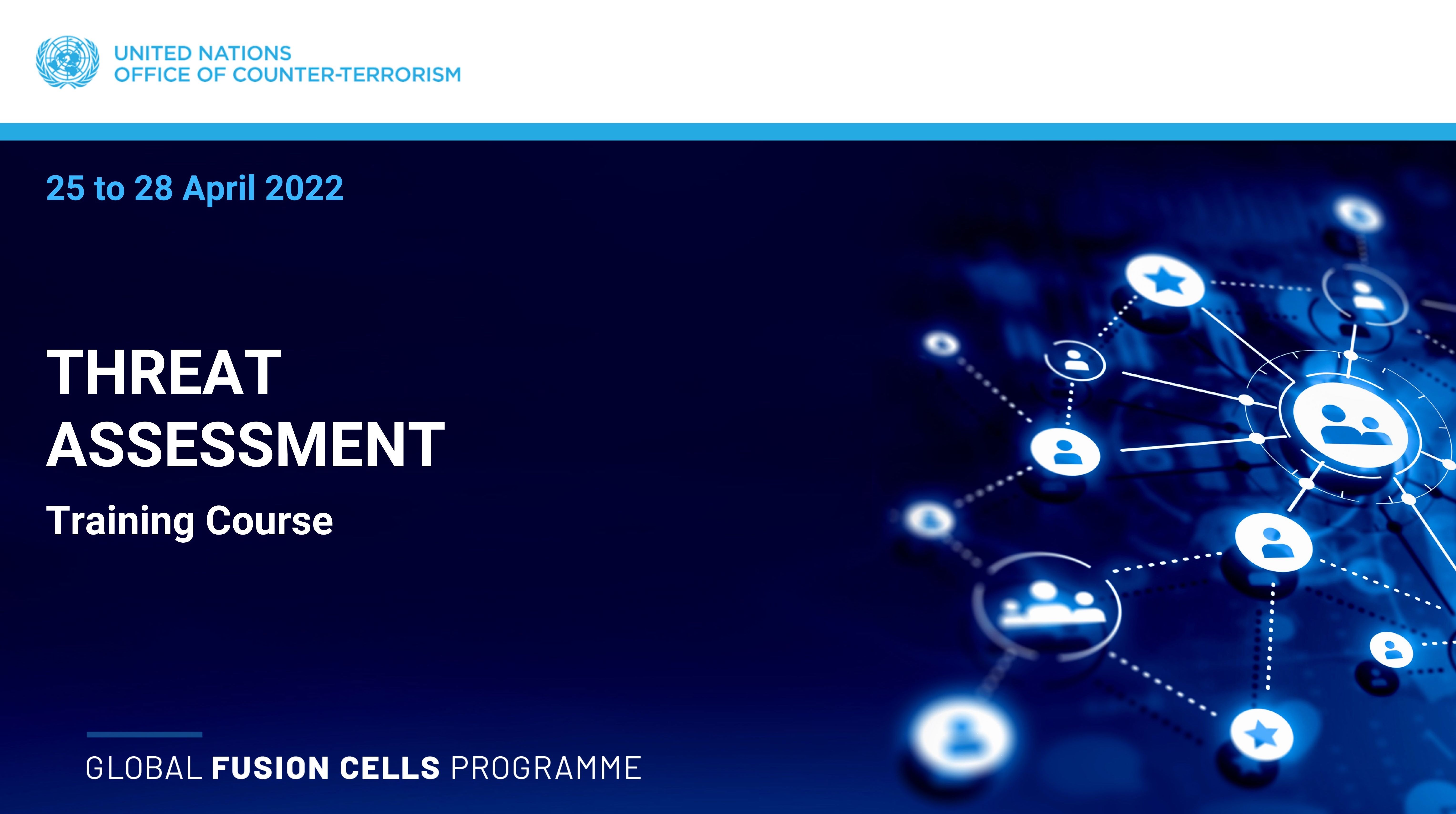Fusion Cells Threat Assessment Course

From 25 to 28 April 2022, the United Nations Office of Counterterrorism (UNOCT) delivered the “Threat Assessment” course to 35 representatives from national security, counterterrorism and law enforcement agencies in Botswana, Ghana, Uganda, and the regional Southern African Development Community (SADC).
This course was intended for officials who wish to develop their knowledge and understanding of threat assessments and apply a risk-management approach to their fusion centre. The training built upon topics covered in the programme’s “Analyst course”, such as intelligence products, threat identification, and assessment, early warning and indicators, harm analysis matrices, prioritization of threats and prioritization in decision-making. The course walks participants through each step of producing a threat assessment, from devising an information collection plan, managing information and conducting environmental scanning and SWOT analysis to structuring, writing and disseminating the report.
This course is part of a comprehensive building-block approach brought forth by the Global Fusion Cells Programme, which ties into a more extensive set of foundational skills. It developed following international standards that must be available to all relevant fusion centre and counter-terrorism staff. It is the seventh course in the Global Fusion Cells Programme’s curriculum.
Background
The 3-year Global Fusion Cells Programme was launched in January 2020 and is co-funded by the United Nations Peace and Development Trust Fund (UNPDF) and the governments of Portugal and Qatar. UNOCT Special Projects Section implements the programme in cooperation with CTED, UNPOL, CAERT, and Interpol. Current programme beneficiaries include Ghana, Botswana, Uganda, Togo, Mozambique, the Democratic Republic of Congo, and the regional body SADC. The United Nations Office of Counterterrorism (UNOCT) Fusion Cells programme provides specialist technical assistance and expertise to help beneficiary countries develop legislative and institutional frameworks. In doing so, it supports robust, relevant, fit-for-purpose national-level interagency coordination mechanisms and “Fusion Cells/Centres” to address the threat of terrorism. Such mechanisms strengthen intelligence and investigation that can help ensure appropriate preparedness and contribute to a more effective response to and recovery from terrorist attacks.

